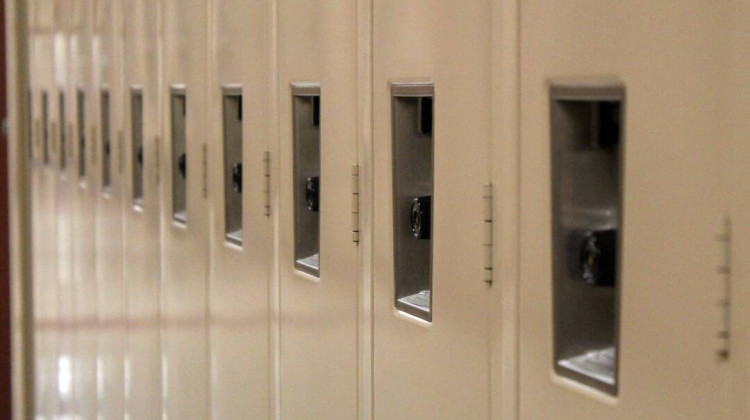
There has been limited testimony or public comment on the bill from teachers’ and school administrators’ advocacy groups.
FILE PHOTO: Jeanie Lindsay/IPB NewsIndiana lawmakers are close to requiring schools to fire or not hire people with certain criminal records. But the bill also opens the door for schools to make exceptions in some cases.
Current law requires schools to “consider” background checks when employing people convicted of some felonies and misdemeanors. But it does not require them to fire or not hire such people, it just says they “may.” Sen. Aaron Freeman (R-Indianapolis) said he thinks that doesn't go far enough. It applies to public, private and charter schools.
“When you're charged with murder, when you're charged with voluntary manslaughter, reckless homicide, kidnapping,” he said. “There are things in here that I hope we could all agree, from Democrat to Republican, anybody who loves children should say these people should not be in front of our children.”
An amended version of Senate Bill 342, which Freeman authored, would require schools to fire existing employees and not hire anyone with a conviction from an expanded list of crimes. It also prohibits employing people with allegations of misconduct such as making “flirtatious or inappropriate comments” to students.
The bill passed the House unanimously on Thursday. It passed the Senate earlier in the session. But, because House lawmakers amended the bill, it has to be approved by the Senate again before it can head to the governor’s desk.
“If you're a teacher in front of your group of students and you're buying them all beer, I would hope you're fired,” Freeman said. “If you're 21, and you buy a beer for your 20-year-old girlfriend, and you're charged with contributing, I think … that's different.”
Join the conversation and sign up for the Indiana Two-Way. Text "Indiana" to 73224. Your comments and questions in response to our weekly text help us find the answers you need on statewide issues throughout the legislative session. And follow along with our bill tracker.
The current bill creates a pathway for schools to employ someone despite such alleged misconduct or some lower-level misdemeanor convictions. A majority of the school’s governing board must vote to employ the individual. If they do, the school must report the decision to the state with an explanation and a plan to ensure students' safety.
That wasn’t in the bill originally. When it first came up in a Senate committee, Freeman said his original draft “probably took more of a hammer to this than we should” and he was inspired to make changes by a call with the Indiana State Teachers Association.
There has been almost no testimony or public comment on the bill from teacher and school administrator advocacy groups since that first hearing.
Adam is our labor and employment reporter. Contact him at arayes@wvpe.org or follow him on Twitter at @arayesIPB.
9(MDAyMzk1MzA4MDE2MjY3OTY1MjM5ZDJjYQ000))
 DONATE
DONATE






 Support WFYI. We can't do it without you.
Support WFYI. We can't do it without you.